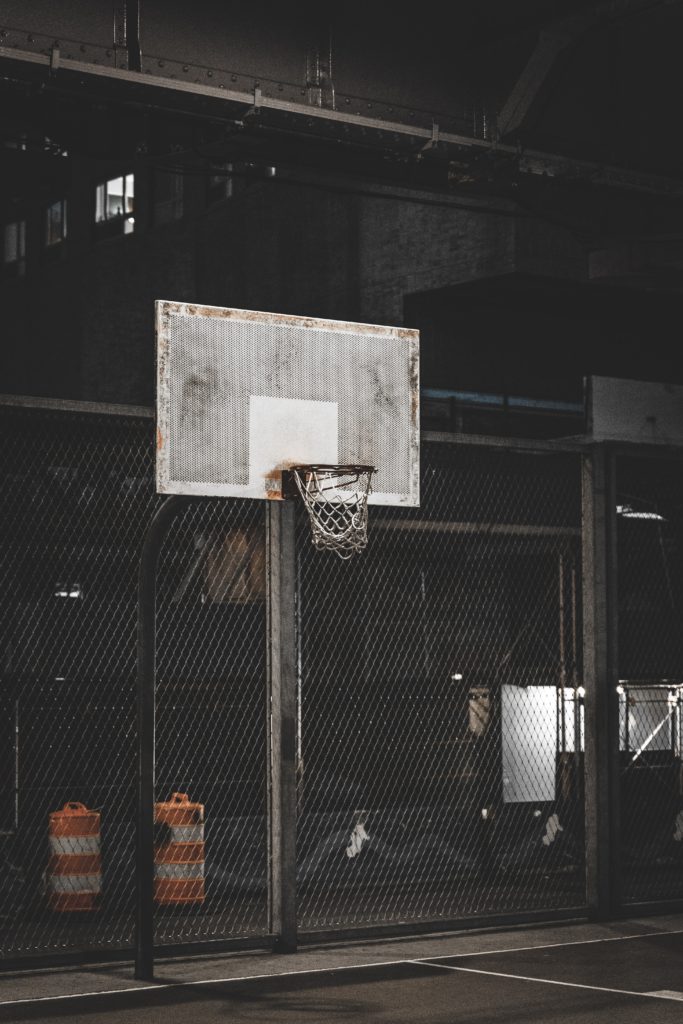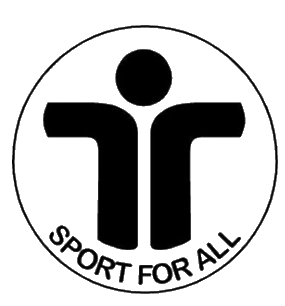Main Menu
Latest Blog Entry
User login
Post-Covid P.E.: The Health of The Nation
As pupils return to school they will find that the opportunities to play team sports will be reduced.
Physical distancing will mean that rugby, football and netball, for example, will be too difficult to administer. Travelling between schools will also be reduced: the risk of transferring the virus will be too great.

Teachers can teach, rather than referee, and inspire a generation of young people to become physically active, rather than slavishly follow the crowd and watch young people disengage from physical activity.
In this blog I shall lay out the following ideas:
· Debunking the Traditional Sports Myth
· The Health of the Nation and how elitism has infected the state school syllabus.
· How P.E, can taught well in Primary Schools
The ‘Traditional’ Sports Myth
Many teachers refer to sports like rugby and cricket as ‘Traditional Sports’ versus ‘new-age’ sports like Parkour. This has become part of the P.E. vernacular and is rarely challenged.
I challenge this misconception and blame Thomas Hughes.
Hughes wrote ‘Tom Brown’s Schooldays’, the popular nineteenth-century novel that shows the character-building effects of rough games and cricket on boys like Tom, at Rugby school. Pierre de Coubertin (founder of the modern Olympics) was a fan of the book and it formed part of his premise for recreating the Modern Games.
Thomas Arnold, the real Head Master of Rugby School (The Doctor in TBS) was no sporting evangelist, he preferred the curing of souls and the developing of boys’ intellects. His educational reforms and treatises did not advocate sport.
So, it is the fictionalised account of Rugby School, aided by William Webb Ellis picking up the ball (1823) and running with it, that has influenced our culture. Rugby School, for those that don’t know, is an Independent (fee-paying) school.
Parkour is often referred to as ‘non-traditional’ yet it predates rugby. Whereas in Britain the playing fields of Eton were credited for defeating Napoleon at Waterloo, in Germany, it was boys playing in the woods. Scared by the prospect of invasion by Napoleon, Father Jahn took a group of boys into the woods outside Berlin, where they practised running, jumping and leaping over and up obstacles.
When the winter came, they moved indoors and built an apparatus that simulated the outdoor obstacles. So began modern gymnastics.
Gymnastics, wrestling, weight-lifting and boxing were all included in the Ancient Games. They are more ‘Traditional’ than team sports and yet have disappeared from school curricula.
The Health of the Nation and how elitism has infected the state school syllabus
Eight years ago the UK hosted the Olympics and boasted of a legacy to inspire generations to follow. There was little evidence from previous countries that any uptake in physical activity followed them hosting the Olympics.
The UK invested £14.8 billion so that 80,000 people could sit in a stadium to watch a few people run around a track. In the case of the women’s 1500m final, 6 of the 9 top finishers were associated with taking Performance Enhancing Drugs. It has been called, host ‘the dirtiest race in history.’
The stadium is now used by West Ham United, so the UK taxpayer has helped subsidise a professional football club’s business.
The clamour to be at the top of the medals table has resulted in millions of pounds being invested to support a few individuals achieve their dreams. Funding for sports in the UK has been dependent on their achieving medal success for years now. UK Sport has deliberately targetted fewer sports that can offer ‘better returns’ since the GB team had poor results in Atlanta 1996.
The UK is famous for winning medals sitting down and going backwards: sailing, rowing, cycling and equestrian. Sports that are expensive to take up so fewer countries have participants which increase the UK chances of winning. Team GB does less well at weight lifting, athletics and swimming; sports which rely less on technology and so equalising the odds for the poorer nations.

Investment has been diverted from ‘grass roots’ to ‘performance’ in order to showcase ‘our talent’. For example, Modern Pentathlon received £6,140,529 between 2017-2020 on the back of winning a silver medal in 2012. Basketball, which has zero chance of winning a medal at the Olympics, has received no funding.
According to The Independent (2016), basketball was second only to football with 218,000 children aged 14-16 playing the sport once a week. How many children were inspired to take up modern pentathlon after its lone medal in 2012?
The money invested in Team GB is mind blowing: for Rio it was £274,465,541. When you realise that of the 96 gold medals won by Team GB between Atlanta (1996) and Rio (2016) just 12 people won or contributed to 49 of them, you can then think how has this helped the country?
12 people!
When the UK government says that investing in sport and the Olympics is good for the country, what they mean is that it is good for a tiny minority of athletes and a lot of support staff.
The Olympics was a smokescreen that covered the underlying poor health of our nation. I wrote to my local MP, Neil Parish, in 2012 to ask him about investment in school Physical Education. He wrote back and spouted the Party Line about the Olympics ‘inspiring a generation‘.
9 years on, and how has that worked out? The Prime Minister, who was Mayor of London at the time of the Olympics was hardly inspired: he weighed 110kg at only 177cm and only his hospitalisation from COVID has made him think of losing weight.
His poor health inspired him to do something, not taking selfies with Gold Medal winners.
The obsession with ‘winning’ has infected our state school physical education system. Now there is a narrow syllabus and the focus is on replicating adult sports with their rules and measurements, rather than building skills, games sense and physical literacy through purposeful and systematic education.
Instead of celebrating every child’s achievement through movement and learning new skills, Primary Schools are participating in leagues that involve children who are already competing.
Why are schools competing in tennis competitions if they don’t play tennis at school? Why are secondary schools throwing people into 100m hurdle races and triple jump competitions after children have only done this twice in school?

What usually happens is that those that are ‘good’ (in reality early-developers or early-specialisers) are selected and the rest of the children are left to wallow in a cesspit of mediocrity and labelled as ‘low-ability’ or ‘disengaged.’
Do you remember “Sport for All”? What a good slogan that was: there is some type of sport for all people.
But select, play and adapt for the children where they are now: not on trying to replicate the ultra-competitive Independent schools that use sports fixtures as an arena to showcase how much better they are than other similar schools.
The Norwegian Social Democratic Model has focussed on the masses rather than the elite. As a result early-specialisation sports such as gymnastics are not targetted nor are expensive sports such as bobsleigh.
Instead, all children are offered a thorough background in sport and the competitive structures are started later. Unsurprisingly, good sportsmen and women have developed as a result of this method and the state gives a small fund to those who make it to the top.
PE can be taught well in Primary Schools
All is not lost. Despite some poor saps being forced to complete a ‘Daily Mile’ (the brainchild of some bottom-feeding, business-person who is cleaning up financially by exploiting imagination -starved and desperate headteachers) there are opportunities to teach our children well.
Willand Primary School won an award for its efforts to provide quality Physical Education during lockdown. Here are some of the ideas that can be used in your school.
- Realise that play and playgrounds are as important as anything that is being ‘taught.’ Just look at what Greg Thompson does with hopscotch below.
- Teach fundamental movements and get the children to practise in an infinite variety of situations/ environments. PE is not like the classroom: children have to move to learn, they can not be ‘educated’ by sitting and listening to a teacher recite rules.
For those of you at the back of the class who haven’t been paying attention, that means hopping, skipping, gliding, running, jumping, throwing, catching, braking, striking and rolling.
3. Build games sense in from an early age by using plenty of collaborative and cooperative activities alongside competitive situations. Children are great at designing their own games: many of which are inclusive, fair and interesting.

Compare that with cricket or rounders: games designed to produce patient English queuers who can stand in line and wait for ‘their turn.’
If a teacher has to spend 10 minutes explaining the rules, there are too many rules.
1v1, 2v1, 2v2 and 3v3 are just about all that children under 10-years old can process.
By limiting the size and complexity of the game, the teacher provides more opportunities for all the children to get involved. A couple of years doing this and then the 10-11-year-old children are ready for bigger sided matches such as 5 or 6 aside.
I know that children do compete in bigger sides and earlier but watch what is happening closely (get off your smartphone) and you will see that only 1 or 2 in each side really understand what is happening. the rest are just drifting along.
Summary
Never has our Nation been in more in need of a concerted effort to improve the health and well being of our children. Instead of throwing them into the arena with 80,000 adults baying at the lions slaughtering the hapless victims (or 20 parents shouting at a tag rugby tournament), let us focus on creating competent movers who can have a choice of activities that allow them to make friends and learn new skills and be challenged on their terms.
Those who wish to compete do so in the playground: the races and jumps and matches that are held with deadly earnest without a pushy-parent or a teacher trying to win a league table involved.
No medals or trophies are involved. Instead, the reward is a Nation of happy, active and confident children.
Take Action Now.
Any schools that would like advice on rejuvenating their physical education or hosting workshops for their teachers can look at our list of courses or contact James Marshall directly.
Client Testimonials
 David Lloyd Tennis Academy
David Lloyd Tennis Academy
James is much liked and respected by all the players both because of his wide knowledge of tennis specific fitness and his ability to communicate the content.
More


Comments
Couldn’t agree more. And you haven’t even covered the Winter Olympics; most of whose traditional events are unavailable to the vast majority of young people. A massive waste of money.
You are correct and I have added a paragraph with a link on how/ why Norway does so well at the Winter Olympics using its Social Democratic principles. Facilities and coaching are available for ALL the population. Unlike the empty warehouses of our ‘Institutes of Sport.’
Really interesting points and quite worrying! As a Head of PE in a secondary we are trying to steer away from the traditional and utilise the non-linear pedagogy approach with a an added element of fundamental strength and conditioning movements through games/challenges ( using the 5in5 as one of our assessment tools). It’s still early days but pupils are enjoying the activities and we are seeing some real progress. Parkour is next on our list (Covid permitting) we have a new parkour playground round the corner and I don’t think I’ve seen anyone ever use it!
I loved this article James, so true. My hope is that teachers will reflect on the way they taught pre COVID and look to incorporate more movement principles, into their sessions.
Thanks Julie, this should resonate with your PE degree days.
I agree with all of this. My love of sport, activity and training came from generally messing about and exploring movement with my mates as a kid. School PE climbing frames and playing games at school in the playground not regimented games and sports trying to replicate elite performance. Bring back Play!
Thanks for the comment Tom.
James send this article to every sports journalist so we can challenge the medal mindset of Sport England. We all share a responsibility for the next generations physical and mental health. They will need to be at the
Top of their game for the challenges that lie ahead. Someone winning a gold medal is not going to do that.
Fantastic article
Thanks, John